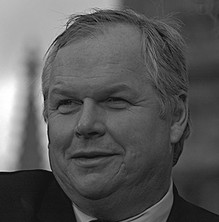
Speaking at City University London about the political year and the future of political reporting, Boulton said: "Print journalists and media have been pushed into a secondary role of basically scavenging on what news people haven't already got through television."
Boulton did admit that "there are something things which print can do that television simply can't do", citing the Telegraph's coverage of the MPs' expenses scandal and the ongoing WikiLeaks saga as examples. But, he warned, the "problem for newspapers is that you can do that just as well online as you can on a dead tree".
Steve Richards, chief political commentator at the Independent, defended newspapers, and in particular political columns, as essential parts of the political reporting experience saying he would be "lost without" them.
He said: "The big difference between broadcast and print is that in print you can write columns where you express views and try to make sense of things in a way that comes from somewhere.
"Adam is quite restrained about how far he can go in his own personal view about things, but in newspapers you can go as far as you want and if that was taken out of the British media's coverage of politics it would be a colossal loss."
Paul Staines - better known as Guido Fawkes, the UK's leading political blogger - also questioned whether removing impartiality restrictions on broadcasters would actually be beneficial as it would provide more interesting TV.
All three agreed that we are now in a new era of political reporting with the formation of the coalition government.
"It has changed everything and it is completely new territory for all of us," said Richards. "There is now a dynamic in political reporting where the main focus of the media is the tension between a coalition."
Boulton echoed Richards saying "we are in a process of re-educating ourselves", but argued that "television and radio have been able to make the transition rather easier than people working in print - whether on ink or on screen".
Staines also added: "I think [political] commentators are loving it, they are enjoying themselves finding their way around the contours of government.
"The people who don't seem too adjusted very well are political reporters, who every time there is a slight nuance in difference of statements or positions [in the coalition government] they go on about splits.
"It is just not the case and I think there is going to have to be a more realistic assessment of what is going on in politics for people."
Rajvir Rai is a postgraduate journalism student at City University London. He can found on Twitter @R_Rai. Image courtesy of Steve Punter on Flickr, some rights reserved.
Free daily newsletter
If you like our news and feature articles, you can sign up to receive our free daily (Mon-Fri) email newsletter (mobile friendly).









